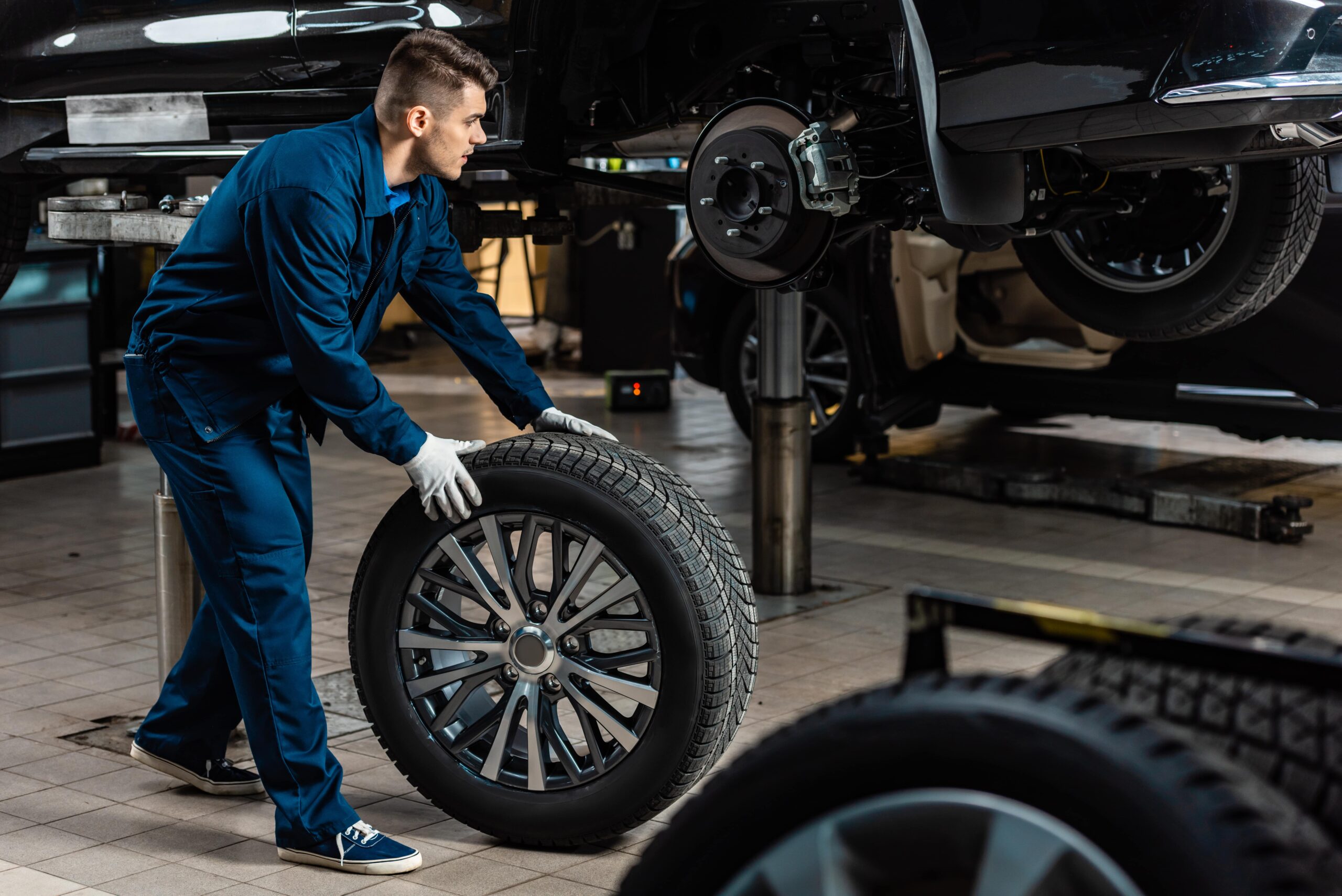Proper tire rotation is crucial for maintaining the safety and efficiency of your vehicle. But do you know how often you should have your tires rotated? Aligned tires are essential for your car’s ability to handle turns and corners smoothly. So, let’s explore how frequently you should rotate your tires to keep them in their best condition.
Gain valuable insights into giving your car’s tires the attention they deserve.
How Often Should You Rotate Your Car Tires?
The general advice is to rotate your tires every 5,000 to 7,500 miles or every six months, whichever comes first. However, the specific recommendation may vary depending on your vehicle type and the type of tires you use. It’s always a good idea to consult your vehicle owner’s manual or seek guidance from a professional mechanic.
What’s Involved in Tire Rotation
As a responsible vehicle owner, you must prioritize maintenance to keep your car in top-notch condition. One critical aspect of maintenance is tire rotation.
During a tire rotation, a mechanic will carefully inspect your tires for any damage, such as punctures, cracks, or bulges. They’ll also check for signs of uneven wear or tear, like cupping or blistering. This thorough examination allows them to identify any issues early on and recommend necessary repairs or replacements.
Tire rotation patterns vary depending on your car’s drivetrain and the manufacturer’s recommendations. For example, a front-wheel-drive car may have a different rotation pattern than a rear-wheel-drive car. Therefore, it’s essential to consult a professional to ensure the correct rotation pattern for your specific vehicle.
Nine Benefits of Tire Rotation
- Even Tire Wear: Regular tire rotation maintains even wear and tear, extending the life of your tires and saving you money in the long run.
- Improved Handling and Performance: Consistent rotation helps maintain proper balance and alignment, leading to improved handling, cornering, and overall performance.
- Enhanced Traction: Proper tire rotation ensures proper tread depth and equal grip on the road, enhancing your vehicle’s traction, especially in wet or slippery conditions.
- Improved Fuel Efficiency: Regular tire rotation can improve fuel efficiency by reducing rolling resistance, translating to better gas mileage.
- Increased Safety: Well-maintained tires improve braking performance and reduce the risk of accidents, enhancing your safety on the road.
- Reduced Noise and Vibration: Regular rotation reduces noise and vibrations, resulting in a smoother, more comfortable ride.
- Warranty Compliance: Many tire manufacturers require regular tire rotations to maintain their warranty coverage.
- Cost-effective Maintenance: Regular tire rotation is a cost-effective way to extend your tires’ lifespan, saving you money over the life of your vehicle.
The Dangers of Not Rotating Your Tires
Neglecting regular tire rotations can lead to several problems, including:
- Uneven Tire Wear: Without rotation, tires wear unevenly, causing a bumpy ride and reduced control, especially in adverse weather conditions.
- Reduced Tire Life: Uneven wear means more frequent tire replacements, resulting in higher costs.
- Poor Fuel Economy: Uneven wear can cause misalignment and increased rolling resistance, reducing fuel efficiency.
- Increased Risk of Blowouts: Irregular wear can create weak spots in your tires, increasing the risk of blowouts, especially at high speeds.
- Reduced Traction: Without proper rotation, tires lose traction more quickly, making driving hazardous in wet or snowy conditions.
- Costly Repairs: Neglecting rotation can lead to more severe issues, such as misaligned wheels, resulting in costly repairs.
Seek Professional Assistance for Tire Rotation
While DIY tire rotation may be tempting, it’s highly advisable to turn to an auto repair shop. Auto repair experts possess the necessary equipment and knowledge to rotate your car’s tires correctly, ensuring optimal tire wear and a smoother driving experience.
At Gipson’s Tire & Auto, you can rely on us to identify potential issues you might overlook. We offer expert advice on maintaining your tires and extending their lifespan.





